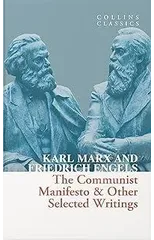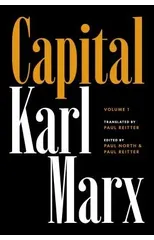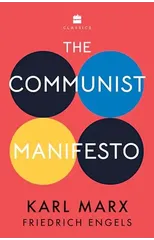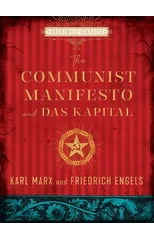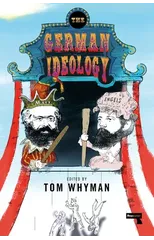The Communist Manifesto / Комунистическият манифест
Tr
(Author) Karl MarxFrom the moment when labour can no longer be converted into capital, money, or rent От момента, в който трудът вече не може да бъде превърнат в капитал, пари или рента when labour can no longer be converted into a social power capable of being monopolised когато трудът вече не може да бъде превърнат в обществена сила, която може да бъде монополизирана from the moment when individual property can no longer be transformed into Bourgeoisie property от момента, в който индивидуалната собственост вече не може да бъде преобразувана в буржоазна собственост from the moment when individual property can no longer be transformed into capital от момента, в който индивидуалната собственост вече не може да бъде превърната в капитал from that moment, you say individuality vanishes От този момент казвате, че индивидуалността изчезва You must, therefore, confess that by "individual" you mean no other person than the Bourgeoisie Затова трябва да признаете, че под "индивид" не разбирате нищо друго, освен буржоазията you must confess it specifically refers to the middle-class owner of property Трябва да признаете, че това се отнася конкретно за собственика на собственост от средната класа This person must, indeed, be swept out of the way, and made impossible Този човек наистина трябва да бъде пометен от пътя и да стане невъзможен Communism deprives no man of the power to appropriate the products of society Комунизмът не лишава никого от властта да присвоява продуктите на обществото
Karl Marx
Karl Marx was a German philosopher and economist known for his seminal work "The Communist Manifesto." His writing style was clear and persuasive, advocating for the overthrow of capitalism and the establishment of a classless society. Marx's key contribution to literature was his critique of the capitalist system and its impact on society.

